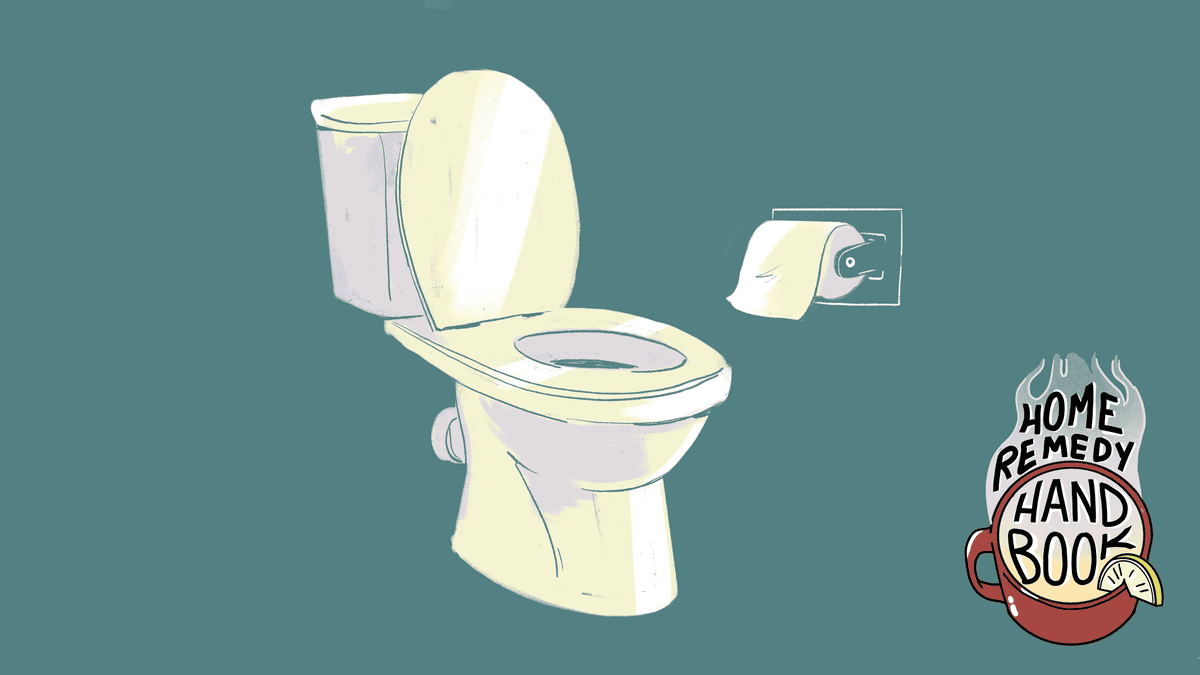What to Do If You Just Can’t Poop

This post is part of our Home Remedies Guide , a review of home remedies from dubious to doctor-approved. Read more here .
If you have ever had constipation, you know what a terrible feeling it is: all this heaviness and bloating, and there is no relief to be seen. When constipation sets in, you may find yourself reaching for all the fibers in your field of vision, swallowing water as if you were in the middle of the Sahara, or starting to run to speed up the process. But what causes this constipation, and what is the most effective way to deal with it yourself ?
Some of the most common causes of constipation are related to the slow passage of waste through the digestive tract or difficulty in removing waste through the rectum, both of which result in waste becoming hard and dry. Constipation can occur for a number of reasons, including diet, dehydration, or health conditions. Depending on the situation, this can either be infrequent or become a chronic problem.
Fiber Helps, but Increase It Slowly
One of the main culprits for constipation is a low-fiber diet that many of us do. “The average American is still fairly low in fiber,” says Eamonn Quigley, a gastroenterologist at the Houston Methodist Hospital . According to the USDA Dietary Guidelines , the recommended amount of fiber per day for adults ranges from 22 grams per day for women over 51 to 34 grams per day for men ages 19 to 30.
While these ranges vary by age and gender, most of us don’t eat enough: the USDA estimates that 90% of women and 97% of men don’t consume the recommended daily amount of fiber. Good sources of fiber are fruits, vegetables, and whole grains. If this is still not enough, wheat bran, flax, and fiber supplements may be helpful.
However, when it comes to adding more fiber to your diet, you should avoid drastic changes in your eating habits and be patient. “Changing your diet can lead to a change in your bowel habits,” Quigley said. Eating more fiber may help in the long run, but it can lead to bloating in the short term. “If you’re going to increase your fiber intake, do it very gradually,” Quigley said.
Prunes and prune juice are also effective for constipation due to the presence of a sugar called sorbitol which has a laxative effect. Some people also swear that coffee helps them move. While the evidence is mixed, there is some evidence that coffee may help.
Exercise can help
If your stool just won’t budge, it may help you move, as regular exercise can help with constipation . Exercise is thought to help shorten the time it takes for food to pass through the gastrointestinal tract, which in turn reduces the amount of water reabsorbed. The drier the stool, the harder (and more painful) it is to remove from the body.
Water helps, but only when dehydrated.
One common myth that Quigley often encounters is the belief that drinking water helps with constipation. While there is truth to this, it is a more limited effect than people think, as its effectiveness depends on whether you are dehydrated or not. “If you’re on a regular diet, you don’t need to take in excess water; it won’t help with constipation,” Quigley said. “On the other hand, if you’re dehydrated, it will make a difference.”
Laxatives help, but don’t overdo it
If you’ve been eating fiber, drinking water, and exercising regularly, but you’re still constipated, it might be time to take an over-the-counter laxative, of which there are several different options . These include:
- Oral osmotic agents, such as milk of magnesia, which draw water into the colon, softening the stool.
- Bulk-forming drugs such as Metamucil, which absorb water to produce softer, bulkier stools.
- Stool softeners such as Colace, which moisturize the stool.
- Oral stimulants such as Dulcolax, which help eliminate stools by causing the intestinal muscles to contract.
While laxatives can help with occasional constipation, “you shouldn’t overdo it,” Quigley said. “People can become addicted to laxatives for bowel movements.”
When to See a Doctor
If constipation occurs only occasionally and resolves with these methods, it is easy to treat at home. If your constipation becomes regular to the point where you take laxatives more often and all the usual fiber jogging methods don’t help, you should see your doctor as there are a number of medical issues that can cause chronic constipation. You should also see a doctor if you suddenly become constipated, as this may be a signal that something is wrong.